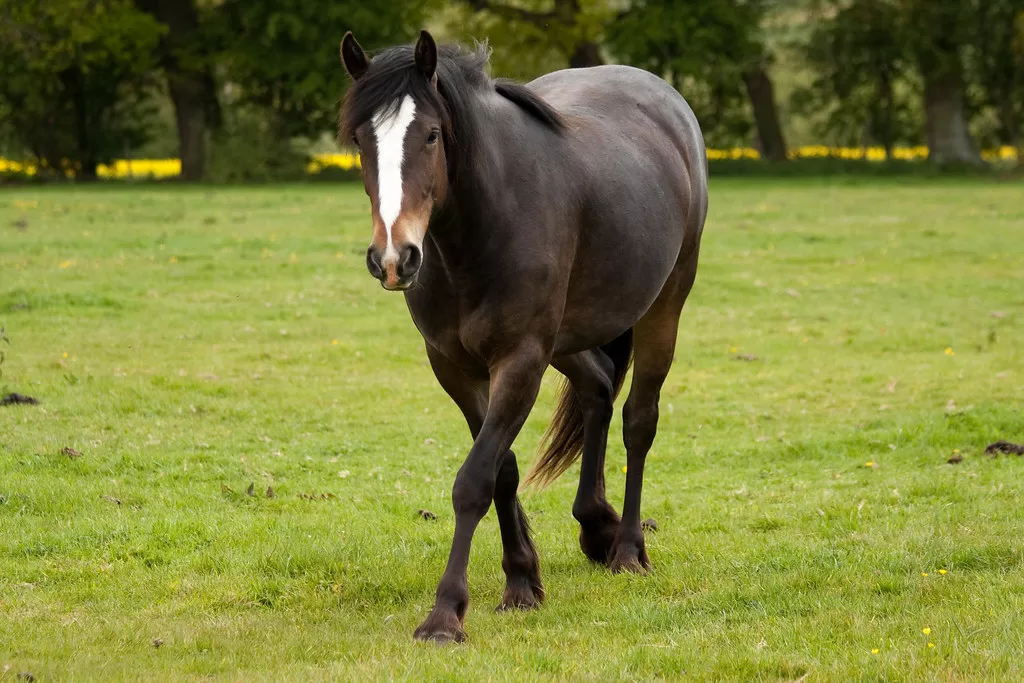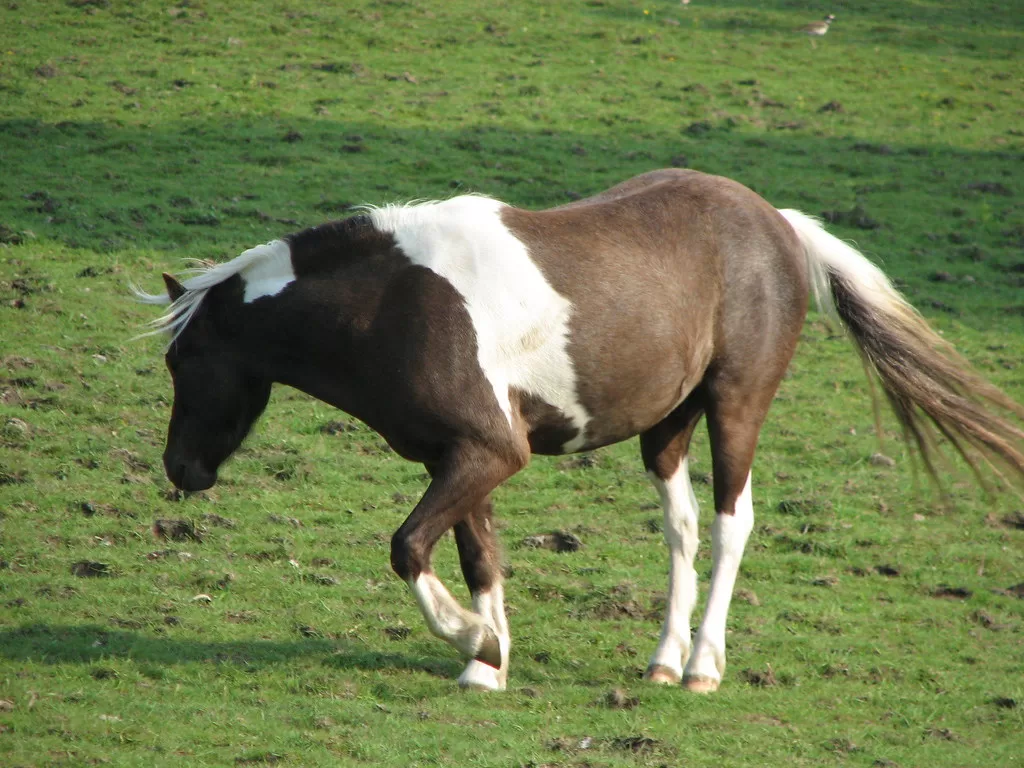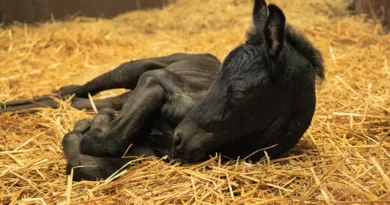How Long Does a Horse Live on Average?
 Horses are magnificent creatures, revered for their strength, beauty, and companionship. Whether you’re a seasoned equestrian or someone with a newfound interest in horses, one question often arises: “How long does a horse live on average?” This article delves into the factors that influence a horse’s lifespan, the average age a horse can reach, and other pertinent details to help you better understand these incredible animals.
Horses are magnificent creatures, revered for their strength, beauty, and companionship. Whether you’re a seasoned equestrian or someone with a newfound interest in horses, one question often arises: “How long does a horse live on average?” This article delves into the factors that influence a horse’s lifespan, the average age a horse can reach, and other pertinent details to help you better understand these incredible animals.
Factors Affecting a Horse’s Lifespan
Horses’ lifespans can vary significantly depending on several key factors:
1. Breed
Different horse breeds have varying life expectancies. Some smaller pony breeds may live longer, while larger draft breeds typically have shorter lifespans. On average, horse breeds can live from 25 to 30 years.
2. Nutrition
Proper nutrition plays a pivotal role in a horse’s longevity. Providing a balanced diet with essential nutrients is crucial for their overall health.
3. Housing and Environment
A horse’s living conditions and environment are essential factors. Horses that are kept in clean, safe, and spacious stables or pastures tend to live longer and healthier lives.
4. Veterinary Care
Regular check-ups and vaccinations are essential to catch and address health issues early on. Access to veterinary care can significantly impact a horse’s lifespan.
5. Exercise and Activity
Regular exercise is vital for a horse’s physical and mental well-being. It helps maintain their weight, muscle tone, and overall health.
The Average Lifespan of a Horse
On average, horses live for 25 to 30 years. This, however, can vary based on the factors mentioned above. Let’s explore the different life expectancies of various horse breeds:
- Ponies: Smaller pony breeds, such as Shetland ponies, can live up to 40 years or more if well cared for.
- Thoroughbreds: Thoroughbred horses are often bred for racing and tend to live around 25 to 30 years.
- Draft Horses: Larger draft horse breeds, like Clydesdales, may have a lifespan of 20 to 25 years.
- Mixed Breeds: Horses of mixed breed backgrounds usually fall within the average range of 25 to 30 years.
Caring for Your Horse to Ensure a Long Life
To help your horse live a long and healthy life, here are some essential care guidelines:
- Quality Nutrition: Provide a balanced diet with the right amounts of hay, grains, and supplements. Consult with a veterinarian for a nutrition plan tailored to your horse’s needs.
- Regular Exercise: Ensure your horse gets adequate exercise. This can include riding, turnout in a pasture, or even just daily walks.
- Dental Care: Regular dental check-ups are vital to prevent dental problems that can affect a horse’s ability to eat and digest food properly.
- Vaccinations and Deworming: Follow a vaccination schedule and deworming plan as recommended by your veterinarian to prevent diseases.
- Hoof Care: Regular trimming and shoeing of hooves are essential for a horse’s mobility and comfort.
- Stress Reduction: Minimize stress in your horse’s life. Horses are sensitive animals, and a calm and predictable environment contributes to their well-being.
Common Health Issues in Horses
Understanding potential health issues is crucial for horse owners. Some common health problems include:
1. Colic
Colic is a severe abdominal pain condition in horses and can be life-threatening. Prevention includes a proper diet, hydration, and regular exercise.
2. Laminitis
Laminitis is the inflammation of the sensitive tissue in a horse’s hooves. It can lead to lameness and even euthanasia in severe cases.
3. Arthritis
As horses age, they may develop arthritis. Regular veterinary care and appropriate exercise can help manage this condition.
4. Dental Issues
Dental problems can hinder a horse’s ability to chew and digest food. Regular dental check-ups are essential.
FAQs About Horse Lifespan
Q1: Can a horse live longer than 30 years?
A1: While it’s rare, some well-cared-for horses, especially smaller breeds like ponies, can live beyond 30 years.
Q2: Does the horse’s gender affect its lifespan?
A2: Gender typically does not influence a horse’s lifespan. Factors like breed, care, and health are more significant.
Q3: What is the most critical factor in ensuring a long horse life?
A3: Providing proper nutrition, regular exercise, and access to veterinary care are among the most critical factors.
Q4: Can you estimate the average annual cost of horse care?
A4: The cost of horse care can vary widely depending on factors like location, the type of horse, and its specific needs. On average, it can range from $2,000 to $5,000 or more annually.
Proper Grooming
Grooming your horse is not only a great bonding experience but also essential for their health. Regular brushing removes dirt and debris, stimulates blood circulation, and helps identify any skin issues or injuries.
Adequate Shelter
Providing your horse with a comfortable and safe shelter is vital. It protects them from extreme weather conditions, which can impact their health. Ensure the shelter is well-ventilated and clean.
Social Interaction
Horses are social animals and thrive on companionship. It’s beneficial to keep them with other horses or animals, as isolation can lead to stress and other health issues.
Preventive Healthcare
Aside from vaccinations and deworming, it’s crucial to have regular check-ups with a veterinarian. Early detection of health issues can make a significant difference in treatment outcomes.
Exercise Routine
A structured exercise routine not only keeps your horse physically fit but also mentally engaged. Riding, lunging, and free turnout time in a pasture all contribute to their overall well-being.
Weight Management
Maintaining a healthy weight is essential for your horse’s longevity. Obesity can lead to a range of health issues, including laminitis and joint problems.
Stress Reduction
Minimize sources of stress in your horse’s environment. Loud noises, sudden changes, and overcrowding can all lead to anxiety, which can affect their health.
Nutrition
Quality nutrition is undeniably one of the cornerstones of a horse’s health. Therefore, it is essential to consult with a professional equine nutritionist or your veterinarian to create a diet plan that is finely tailored to your horse’s age, breed, and activity level.
Clean Water
Access to clean, fresh water is crucial. Dehydration can lead to various health problems, so ensure your horse’s water source is regularly replenished.
Dental Care
Regular dental check-ups and maintenance are essential. Dental issues can make it difficult for horses to chew properly, affecting their overall health.
Incorporating these guidelines into your horse’s care routine can significantly increase their chances of living a long and healthy life.
If you have any specific questions or need further guidance on horse care, don’t hesitate to reach out to professionals in the field or consult with experienced horse owners. The more you know about your horse’s unique needs, the better equipped you’ll be to ensure they enjoy a happy and fulfilling life.
Parasite Control
Internal parasites such as worms can pose a significant threat to a horse’s health. Regular deworming is essential, but it should be done strategically to prevent resistance. Consult with your veterinarian for a customized deworming schedule.
Seasonal Considerations
Different seasons can have specific challenges. In winter, providing adequate shelter, nutrition, and hoof care is crucial. During the summer, protecting your horse from extreme heat and providing plenty of water are essential.
Mental Stimulation
Horses are intelligent animals and need mental stimulation. Boredom can lead to behavioral issues and stress. Consider providing toys or puzzles for mental engagement.
First Aid Kit
Having a well-stocked first-aid kit on hand is essential. It should contain items for wound care, bandaging, and basic medical supplies. Knowing how to use these items is equally important.
Disease Prevention
In addition to vaccinations, practicing good biosecurity is vital to prevent the spread of contagious diseases. Isolate new horses before introducing them to the herd and maintain good hygiene practices.
Aging Horses
As horses age, their care requirements may change. Regular veterinary check-ups can help identify and manage age-related issues such as arthritis, weight loss, or dental problems.
Safe Handling
Proper handling is essential for both your safety and your horse’s. Ensure that you and anyone who interacts with your horse knows how to approach, groom, tack up, and lead them safely.
Emergency Preparedness
Being prepared for emergencies is critical. Know how to respond to injuries, colic, and other health crises. Have a plan for evacuations in case of natural disasters.
Record Keeping
Maintaining detailed records of your horse’s care is beneficial. This includes vaccinations, deworming, dietary changes, and any health issues or injuries. These records can be invaluable for your veterinarian.

See Also: How long do horses live? Amazing Facts About Horses’ Life
Insurance
Consider investing in equine insurance. It can provide financial protection in case of unexpected medical expenses or other emergencies.
By embracing these comprehensive care strategies, you’ll create an environment where your horse can thrive and live a long and fulfilling life. Remember that every horse is unique, and their specific needs may vary, so continuous communication with your veterinarian and regular assessments of their well-being are essential.
Enjoyed this article? You May Also Like:
- Learn in 5 minutes about Cryotherapy for Horses
- Penicillin in Horses; Impeccable Guide in 10 minutes
- Excede Antibiotic For Horses, Fantastic Facts in 5 minutes
- The Science of Oxytocin in Horses: How This Hormone Influences Equine Behavior
- Can Horses Swim? Everything You Need To Know About Horse Swimming





